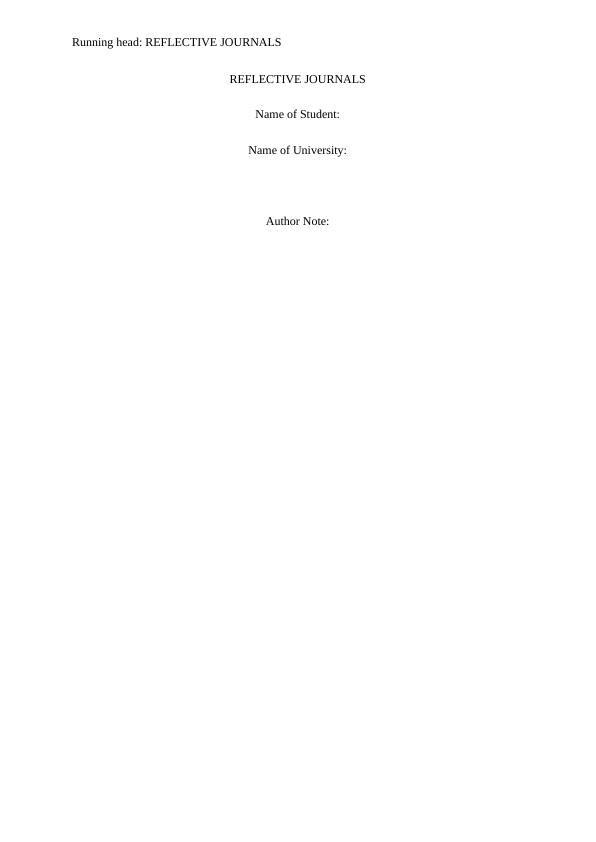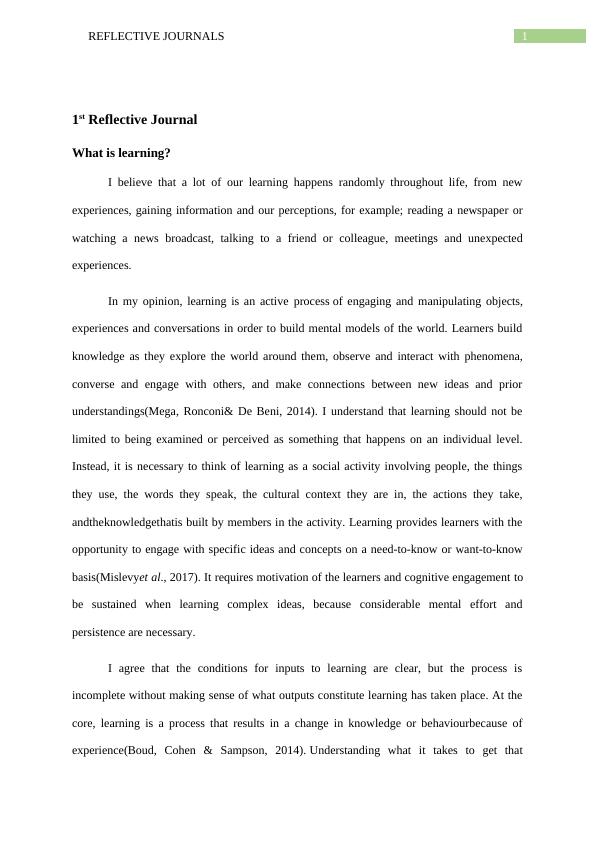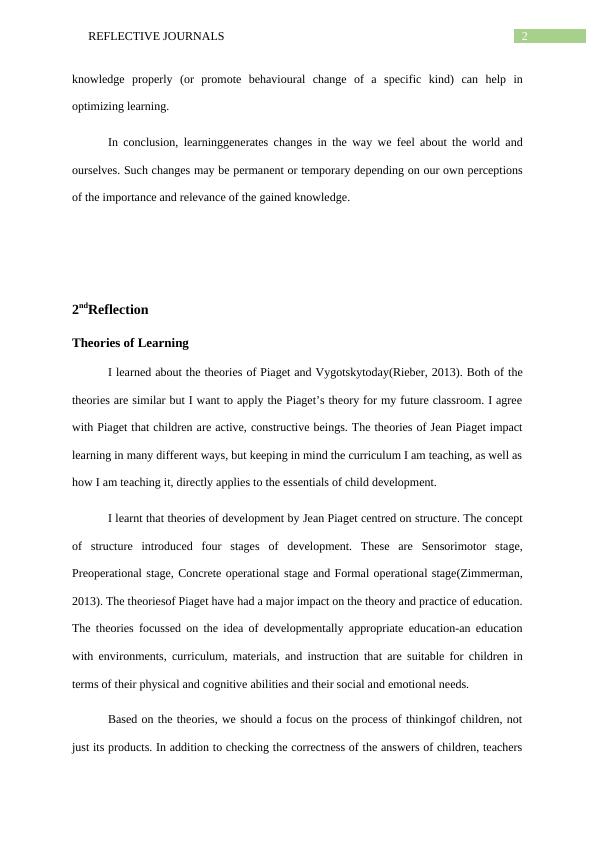Reflective Journals on Learning, Theories of Learning, and Problem Solving Approach
Added on 2023-06-10
7 Pages1449 Words195 Views
End of preview
Want to access all the pages? Upload your documents or become a member.
THEORIES, PRINCIPLES AND MODELS OF LEARNING IN EDUCATION
|10
|2366
|90
Cambridge International Certificate in Teaching and Learning
|10
|3013
|180
Theories and Principles of Teaching and Learning: Communication, Assessment, and Curriculum Development
|26
|2231
|372
(PDF) Language learning assignment
|16
|4446
|43
Teaching and Learning Theories in Nursing Education
|18
|4658
|278
Theories, Models, and Principles of Learning, Communication, Assessment, Curriculum Development, Reflection, and Evaluation
|15
|1481
|68



